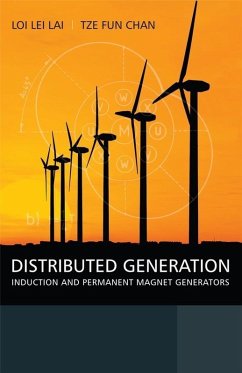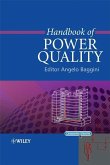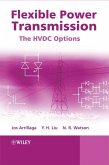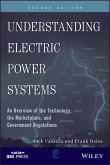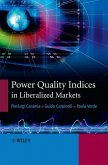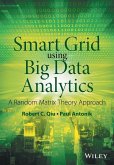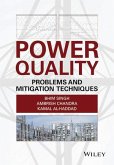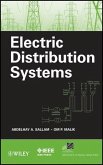Distributed power generation is a technology that could help to enable efficient, renewable energy production both in the developed and developing world. It includes all use of small electric power generators, whether located on the utility system, at the site of a utility customer, or at an isolated site not connected to the power grid. Induction generator (IG) is the most commonly used and cheapest technology, compatible with renewable energy resources. Permanent magnet (PM) generators have traditionally been avoided due to high fabrication costs; however, compared with IGs they are more reliable and productive. Distributed Generation thoroughly examines the principles, possibilities and limitations of creating energy with both IGs and PM generators. It takes an electrical engineering approach in the analysis and testing of these generators, and includes diagrams and extensive case study examples to better demonstrate how the integration of energy sources can be accomplished. The book also provides the practical tools needed to model and implement new techniques for generating energy through isolated or grid-connected systems. Besides a chapter introducing the technical, economic and environmental impacts of distributed generation, this book includes: * an examination of various phase-balancing schemes for a three-phase IG operating on a single-phase power system; * a coupled circuit 2-D finite element analysis of a grid-connected IG, with Steinmetz connection; * a study of self-excited induction generator (SEIG) schemes for autonomous power systems, and the voltage and frequency control of SEIG with a slip-ring machine (SESRIG); * a report on a PM synchronous generator with inset rotor for achieving a reduced voltage regulation when supplying an autonomous power system, and an analysis of its performance using a two-axis model and finite element method; * experimental work on various IG and SEIG schemes. This book is a must-read for engineers, consultants, regulators, and environmentalists involved in energy production and delivery, helping them to evaluate renewable energy sources and to integrate these into an efficient energy delivery system. It is also a superior reference for undergraduates and postgraduates. Designers, operators, and planners will appreciate its unique contribution to the literature in this field.
Dieser Download kann aus rechtlichen Gründen nur mit Rechnungsadresse in A, B, BG, CY, CZ, D, DK, EW, E, FIN, F, GR, HR, H, IRL, I, LT, L, LR, M, NL, PL, P, R, S, SLO, SK ausgeliefert werden.

